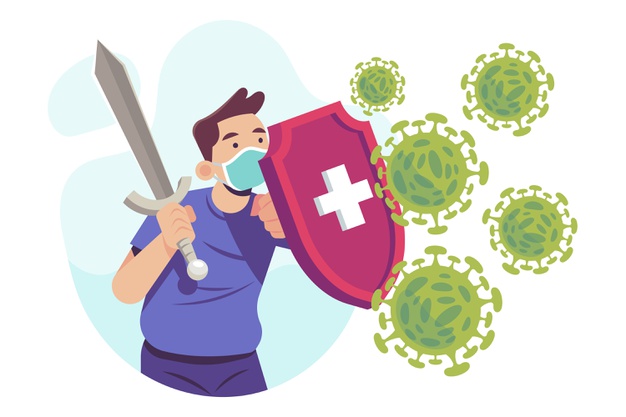COVID-19 was declared a Pandemic by WHO more than a year ago. New studies are still being conducted to understand more about its nature of transmission. It was initially believed that the infection spreads through droplets and close contact. But over the year emerging research studies have pointed to the possibility of its Airborne Transmission. WHO, in its recent guideline has confirmed that Coronavirus is airborne. This latest Finding was first published in The Lancet journal. And the scientists called for modification of the international protocol in dealing with the Pandemic. As more information emerges, governments need to revise their strategy to fight COVID-19 and advise the public to modify their behaviour accordingly.
Airborne
It means that the pathogen is capable to spread through aerosol particles that can remain suspended in the air for a longer period. These aerosols are respiratory droplets produced during breathing, coughing, or sneezing. And can remain suspended in the air for almost an hour over long distances up to six feet or greater, according to CDC.
Exposure to tiny droplets containing virus strains when you are in direct contact with an infected person increases the chances of transmission manyfold. airborne transmission of COVID-19 not only has a ‘higher attack rates’, but also has high exponentiality, which means it can infect a large number of people in a very short period.
Conditions conducive to Airborne Transmission.
Poorly ventilated and closed settings increase the risk of airborne transmission of COVID-19 because the virus in the droplets can stay suspended for a longer duration. Prolonged exposure to infected respiratory aerosols is another condition that can increase your susceptibility to catching the infection, as it allows the build-up of these small droplets and their viral load. The Medical community has also pointed out that repeated use of damp masks or not changing masks at regular intervals may increase your susceptibility to the infection because it creates a favorable environment for viral growth.
What can you do to protect yourself from the Transmission?
1. The Six-Foot Rule
This social distancing rule can considerably reduce your risk of COVID-19 exposure. Because studies have revealed that airborne transmission of the contagious pathogen from a primary source would have a maximum range of six feet. You should make sure to keep at least two arm’s length distance from the next person when you step outside the house. This can ensure your safety as well as of the others.
2. Up your game with the mask
As the virus mutates into a more contagious pathogen and as new information emerges. You should also revise your strategy and precautions to fight it. The new variant of Coronavirus is believed to be 15% more infectious. And with confirmation of its airborne transmission, you can no more rely on a cloth mask. Doctors have advised wearing an N95 respirator or mask. Whenever stepping out of the house it reduces your chances to catch the virus by over 95%.
If you don’t have an N-95 mask at home, then you can follow the double masking routine. In double masking, you need to wear a surgical mask over a cloth mask for optimal protection against COVID-19. Make sure that a 3-ply surgical mask is tightly rested against your face and nose clip is appropriately placed.
3. Ensure sufficient ventilation.
Cross ventilation of air through your home is important to prevent suspension and consequent build-up of the COVID-19 virus in your house. Constant circulation of clean and fresh air would not allow aerosols to re-circulate and remain suspended for a longer period. This would ensure the adequate dilution of indoor air and keep it virus-free.
4. Sanitize and disinfect
WHO has recommended hand hygiene, sanitization, and regular disinfecting. Washing your hand with soap and water at regular intervals for 20 seconds can decrease your susceptibility to COVID-19. In case soap and water are not available or you are outside. You can use an alcohol-based rub or sanitizer to stay protected. Remember that it is also possible for COVID-19 to spread by touching a contaminated surface or through fomites. So it is necessary to wear hand gloves when you are outside and try to avoid touching your face or eyes to reduce the risk.
5. Vaccination
Finally, the vaccine is the ultimate tool to win over the COVID-19 Pandemic. Vaccine shots mimic the virus proteins once it enters your body. It enables the cells to build artificial antibodies against the coronavirus, thus providing you with a sure ‘shot protection’. Vaccines have the potential to save lives, reduce case numbers and drastically reduce the severity of the disease. There might be a lot of misinformation around the subject of vaccines. But it is the only hope that can bring the world back to much-awaited ‘normalcy’. So, don’t get caught up with the vaccine hesitancy and get yourself registered for it to win the battle against COVID-19 and its airborne transmission.
.
